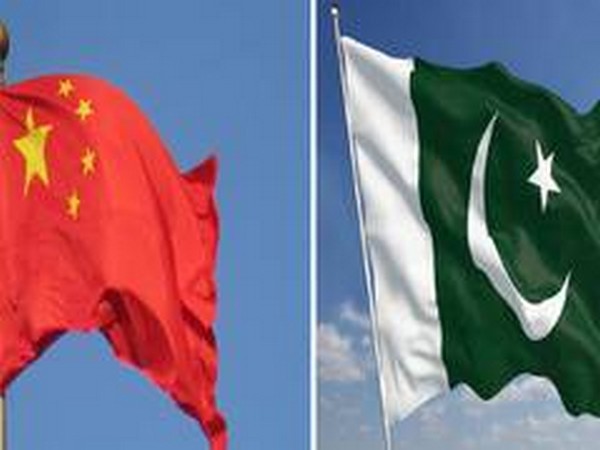On November 5, a security guard shot and wounded two Chinese nationals working at a textile mill in Karachi, Pakistan.
One of them is reportedly very critical. However, the Pakistani authorities have refused to share updates on him, fearing international embarrassment.
Chinese nationals were at the mill to install new machinery when the guard opened fire at them “for unknown reasons” after a “heated argument.” No terror angle has been confirmed in the incident.
However, Chinese citizens are facing targeted violence from insurgent groups and locals in Pakistan.
Consequently, Beijing has frequently demanded better security for its nationals working in different parts of Pakistan, mostly on the China Pakistan Economic Corridor (CPEC).
Moreover, an unknown number of Chinese are also working in Pakistani factories.
Last month, two Chinese nationals were killed in a suicide car bombing outside the Karachi airport.
Reports suggest that China may use private security companies to protect its workers in Pakistan, which could merely be the first step in a series of coercive measures from Beijing.
The recent incident in Karachi has upset Beijing, which will now put more pressure on Islamabad for a joint security mechanism, including private security guards from China.
This will compromise Pakistan’s domestic security and embarrass it internationally for failing to protect foreign workers.
Additionally, the increasing violent attacks indicate that locals in Pakistan are unhappy with the growing presence of Chinese nationals in the country.
This situation will heighten tensions between China and Pakistan and may significantly hinder the progress of CPEC projects.
The Karachi shooting incident occurs amidst rare diplomatic tensions between Islamabad and its close ally, Beijing.
These differences stem from growing security threats to Chinese workers and engineers involved in infrastructure development projects under the China-Pakistan Economic Corridor (CPEC).
In March of this year, a suicide car bombing in Khyber Pakhtunkhwa killed five Chinese workers and their local driver who were traveling to the Dasu hydropower project.
Since the launch of CPEC in 2015, which is the flagship project of President Xi Jinping’s global Belt and Road Initiative (BRI), the total number of Chinese casualties in targeted attacks has reached 21.
In 2022, an explosion tore through a van at the University of Karachi, killing three Chinese educators and their Pakistani driver.
In 2021, a bus blast in northern Pakistan killed 13 people, including nine Chinese nationals.
Last month, Pakistan announced in a joint statement with China that it had agreed to enhance security for Chinese citizens and projects in Pakistan, as Beijing called for urgent security measures due to a surge in militant threats.
Last month, during a public seminar, the Chinese ambassador to Pakistan, Jiang Zaidong, issued a rare warning, accusing Islamabad of ongoing security failures regarding Chinese workers.
Analysts noted that these comments reflect China’s growing frustration with the security risks its workers face in Pakistan.
Jiang stated that the violence is “unacceptable” and creates “a constraint” on Chinese investments in Pakistan under the Belt and Road Initiative.
Additionally, Jiang referenced suicide car bombings in March and October of this year, which resulted in the deaths of seven Chinese personnel.
These remarks represent a rare public criticism of Islamabad. The Foreign Ministry of Pakistan described the envoy’s statements as “perplexing” and “inconsistent” with the diplomatic traditions between the two countries, marking an unprecedented response.
Amid rising violent attacks, China has proposed a ‘joint security mechanism’ with Pakistan, believing that the current level of cooperation between the two nations is inadequate to foster trust on security issues.
Reports from Pakistani media indicate that this proposal was discussed during Chinese Premier Li Qiang’s visit to Islamabad in September.
Beijing stressed the importance of this mechanism for Pakistan to secure significant infrastructure and energy deals.
Notably, China has become increasingly vocal in criticizing Pakistan for its inability to protect Chinese nationals from attacks.
In June, President Xi warned Prime Minister Shehbaz Sharif to ensure the safety of Chinese personnel and projects for successful bilateral business collaboration.
Furthermore, most official delegations from China have cited security concerns as a key obstacle to advancing CPEC projects.
Under pressure from Beijing, Pakistan’s political and military leadership regularly engages with the Chinese to maintain bilateral relations.
Prime Minister Sharif visited the Chinese Embassy in Islamabad to condemn the Karachi firing incident, which critically injured two Chinese nationals.
In his statement, Sharif said, “I have come here to condemn the attack on Chinese nationals and to inquire about the health of the injured.”
He also claimed, “I am personally overseeing the process of apprehending those involved in this incident and ensuring they receive due punishment.”
Islamabad fears growing tensions with Beijing over security issues could have serious financial consequences as Pakistan owes one-third of its debts from China.
The repeated failures to prevent terror attacks against Chinese nationals will increase pressure on Pakistani authorities to meet Beijing’s demands for a joint security mechanism.
As both countries face a deadlock on this issue, their bilateral relations are likely to deteriorate due to Islamabad’s consistent failure to ensure the safety and security of Chinese nationals in Pakistan.
Reports suggest that China may use private security companies to protect its workers in Pakistan, which could merely be the first step in a series of coercive measures from Beijing.
For example, China initially urged Pakistan to launch a new anti-terror campaign targeting extremist groups in Balochistan and Khyber Pakhtunkhwa, which Islamabad began in June under the name ‘Operation Azm-i-Istehkam’ (Resolve for Stability).
Recently, Beijing has pressured Prime Minister Sharif to personally oversee the investigation into the October terrorist attack in Karachi, which resulted in the deaths of two Chinese citizens and injuries to ten others.
These directives are becoming a headache for the Pakistani leadership, which is already struggling to control the scourge of militancy in the country.
Furthermore, Islamabad has reportedly shown reluctance to Beijing in formally allowing Chinese security personnel in Pakistan.
This will negatively impact the image of the country’s armed forces and worsen anti-China sentiments among locals.
As both countries face a deadlock on this issue, their bilateral relations are likely to deteriorate due to Islamabad’s consistent failure to ensure the safety and security of Chinese nationals in Pakistan.









Comment